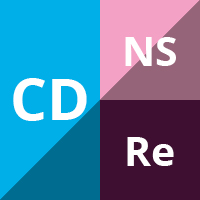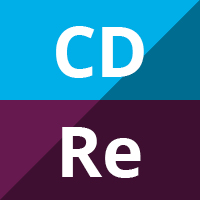
Therapy-based rehabilitation services for patients living at home more than one year after stroke
Abstract Background Current practice of rehabilitation intervention mainly concentrates on the first six months of stroke. At present, there is no agreed consensus about the benefits of such a service more than one year after stroke. Objectives To ascertain whether therapy-based rehabilitation services can influence outcome one year or more after stroke. Search methods We […]

Interventions for motor apraxia following stroke
Abstract Background Apraxia is a cognitive disorder that can occur after stroke. It prevents a person from carrying out a learned movement. Various interventions are used to treat apraxia but evidence of their benefit has been lacking. Objectives To determine which therapeutic interventions targeted at motor apraxia reduce disability. Search methods We searched the Cochrane […]

Vinpocetine for acute ischaemic stroke
Abstract Background Vasoactive and neuroprotective drugs such as vinpocetine are used to treat stroke in some countries. Objectives To assess the effect of vinpocetine in acute ischaemic stroke. Search methods We searched the Cochrane Stroke Group Trials Register (last searched February 2007), MEDLINE (1966 to February 2007) and Scopus (1960 to February 2007). We also […]

Antiplatelet therapy for aneurysmal subarachnoid haemorrhage
Abstract Background Secondary ischaemia is a frequent cause of poor outcome in patients with aneurysmal subarachnoid haemorrhage (SAH). Besides vasospasm, platelet aggregation seems to play a role in the pathogenesis of secondary ischaemia. Experimental studies have suggested that antiplatelet agents can prevent secondary ischaemia. Objectives To determine whether antiplatelet agents change outcome in patients with […]

Dipyridamole for preventing stroke and other vascular events in patients with vascular disease
Abstract Background Patients with limited cerebral ischaemia of arterial origin are at risk of serious vascular events (4% to 11% annually). Aspirin reduces that risk by 13%. In one trial, adding dipyridamole to aspirin was associated with a 22% risk reduction compared with aspirin alone. However, a systematic review of all trials of antiplatelet agents […]

Mannitol for acute stroke
Abstract Background Mannitol is an osmotic agent and a free radical scavenger which might decrease oedema and tissue damage in stroke. Objectives To test whether treatment with mannitol reduces short and long-term case fatality and dependency after acute ischaemic stroke or intracerebral haemorrhage (ICH). Search methods We searched the Cochrane Stroke Group Trials Register (searched […]

Oral anticoagulants versus antiplatelet therapy for preventing stroke in patients with non-valvular atrial fibrillation and no history of stroke or transient ischemic attacks
Abstract Background Non-valvular atrial fibrillation (AF) carries an increased risk of stroke mediated by embolism of stasis-precipitated thrombi originating in the left atrial appendage. Both oral anticoagulants and antiplatelet agents have proven effective for stroke prevention in most patients at high risk for vascular events, but primary stroke prevention in patients with non-valvular AF potentially […]

Calcium antagonists for aneurysmal subarachnoid haemorrhage
Abstract Background Secondary ischaemia is a frequent cause of poor outcome in patients with subarachnoid haemorrhage (SAH). Its pathogenesis has been incompletely elucidated, but vasospasm probably is a contributing factor. Experimental studies have suggested that calcium antagonists can prevent or reverse vasospasm and have neuroprotective properties. Objectives To determine whether calcium antagonists improve outcome in […]

Dan Shen agents for acute ischaemic stroke
Abstract Background Based mainly on experimental data that indicates improvement to the cerebral microcirculation, Dan Shen, a herbal medicine, is widely used in the treatment of acute ischaemic stroke in China. Objectives To assess the effects of Dan Shen agents in patients with acute ischaemic stroke. Search methods We searched the Cochrane Stroke Group Trials […]

EMG biofeedback for the recovery of motor function after stroke
Abstract Background Electromyographic biofeedback (EMG-BFB) is a technique that is believed to have additional benefit when used with standard physiotherapy for the recovery of motor function in stroke patients. However, evidence from individual trials and previous systematic reviews has been inconclusive. Objectives To assess the effects of EMG-BFB for motor function recovery following stroke. Search […]

